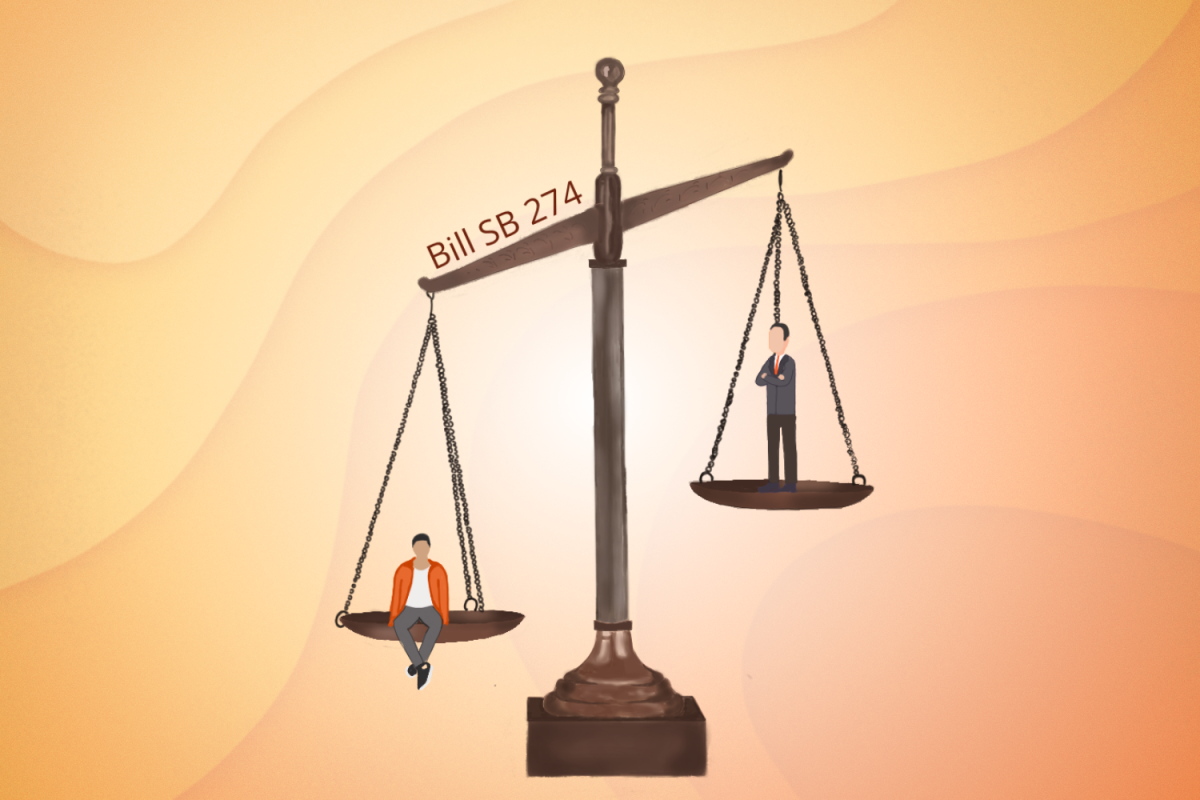While expulsions and suspensions in schools can be necessary for maintaining a safe school environment and eliminating violence or dangerous behavior, the current criteria for a student being expelled or punished presents too low of a bar. On July 1, a new bill titled SB 274 will go into effect to prevent expulsions and suspensions for willful defiance. This bill will protect student records and prevent racial disparities in expulsions and suspensions in a positive step toward equity and justice in California schools.
Willful defiance is defined as an act in which a student persists in minor misbehavior. Some examples include talking over a teacher, wearing clothes prohibited by the dress code and disrupting the class with loud talking. In the past, California laws have allowed schools to expel or suspend students who demonstrated willful defiance. Since willful defiance is considered a minor misbehavior, such disciplinary actions are far too harsh and put students’ futures in unnecessary danger. However, this will fortunately change when SB 274 is put into action, as it prohibits removing students from school via expulsion or suspension for defiance. There are many causes for expulsion or suspension on the list of criteria for disciplinary actions, and willful defiance was only one of the numerous offenses amid other significantly more harmful ones. But according to EdSource, willful defiance is the cause of more than half of all suspensions in California schools. As for suspensions, about a quarter of them were for this reason.
“Suspension is actually one of the least effective consequences for misbehavior,” said Allison Coy, the Director of Educational Options at FUHSD. “Additionally, willful defiance was one of the least concerning offenses in the criteria for suspension or expulsion.”
If extreme disciplinary action is taken, even when students aren’t being violent or dangerous, it could unjustly ruin their chances of success and prosperity in the future. According to the Civil Rights Project at UCLA, 40% of students who have been suspended do not graduate, compared to the 17% of students who do not graduate despite not being suspended Therefore it is crucial that schools prioritize keeping their students in school, giving them access to a necessary education for them to be successful later in life.
“Unless it’s a matter of safety, it’s not helpful to expel or suspend students,” senior and Lynbrook Junior State of America president Kaawon Kim said. “They are just being set up for a lifetime of hardship if they are not given access to education.”
The ability to discipline students for acts of willful defiance affects students of color and students with disabilities at alarmingly higher rates than white students. According to a study conducted by The National Library of Medicine, Black students are 3.2 times as likely to get suspended or expelled as white students, and Native American students are twice as likely to get suspended. This means that these students become victims of potential unjust punishment due to their backgrounds — an action that only reinforces stereotypes about these minorities. The same source also states that students with disabilities are significantly overrepresented in these suspensions.
“I don’t think there is an intentional act of racism from teachers or administrators,” Kim said. “I do think that there are pre-conditioned stereotypes that result in minority students being expelled at higher rates than others.”
SB 274 will lessen the number of minority students who are expelled or suspended. According to ACLU California Action, Black males are three times more likely to be suspended for defiance than their white counterparts. Since many of these expulsions or suspensions are based on willful defiance, this law is a step forward in eliminating unjust punishments due to racism and internal bias. While the bill itself won’t erase the racial stereotypes which have been ingrained into society, it will prevent administrators from acting on them.
As demonstrated, expelling students can have an outsized effect on a student’s post-secondary life. In the absence of proper discipline and counseling, students tend to make the same bad decisions which will in turn affect the rest of their lives negatively. The school-to-prison pipeline is a concept that can generally be defined as a path students, especially racial minorities, fall into after they have been subject to harsh disciplinary actions. Students who repeatedly face harsh discipline from school officials are more likely to be committed to juvenile detention facilities or fail to graduate high school. This injustice has the potential to keep students in the vicious cycle of incarceration, squashing their ability to make a better life for themselves.
“I think a lot of the problems occur because students become defined as a misbehaved student after being expelled or suspended,” Kim said.
Although suspensions and expulsions for willful defiance will be banned in California, this does not rule out the use of this punishment for dangerous behaviors such as sexual violence and weaponry. While preventing the abuse of suspensions and expulsions is a crucial step in ensuring equity for students, it is important to distinguish between what can be considered a disruption and potentially life-threatening behavior in order to keep schools safe environments.
History teacher Luca Signore believes that although the law is a general step in the right direction, it could backfire. Concerns like the success of other students in the classroom amid disruptions are relevant when making changes to expulsion criteria. Teachers may also wonder how else to discipline students if they are prohibited from sending them home.
“The fact that other students are not learning because another student is being defiant needs to be considered,” Signore said. “The students in the class must be respected and sometimes the misbehaving student must be removed from class.”
However, Coy provides a unique solution to these concerns. Instead of pulling students out of school, she suggests disciplining students through methods that keep them in classrooms and give them more time with administrators.
“Sending away students who demonstrate behaviors is not an ideal way to change these behaviors,” Coy said. “A better way to change negative behavior is to give someone more attention, instruction and education.”
FUHSD currently offers Saturday School, a more desirable alternative for students who have demonstrated some level of defiance. Students can meet with counselors and discuss their behavior, and have the opportunity to listen to guests who speak about ways to behave and deal with stress. This option will help foster better future behavior in students, and is more effective than sending students home, which will only teach them to embrace absenteeism. If students’ only consequence for disruption and defiance is being sent home via suspension or expulsion, this gives them the incentive to continue demonstrating these behaviors and not look for ways to change and improve.
By eliminating possibly biased disciplinary action, and allowing students access to the education they deserve, SB 247 will pave a brighter path for students in the future instead of reinforcing misbehavior and limiting their chances of prosperity and success. Instead of sending students home, administrators and teachers can demonstrate more effective and useful solutions to disorderly conduct.



































































